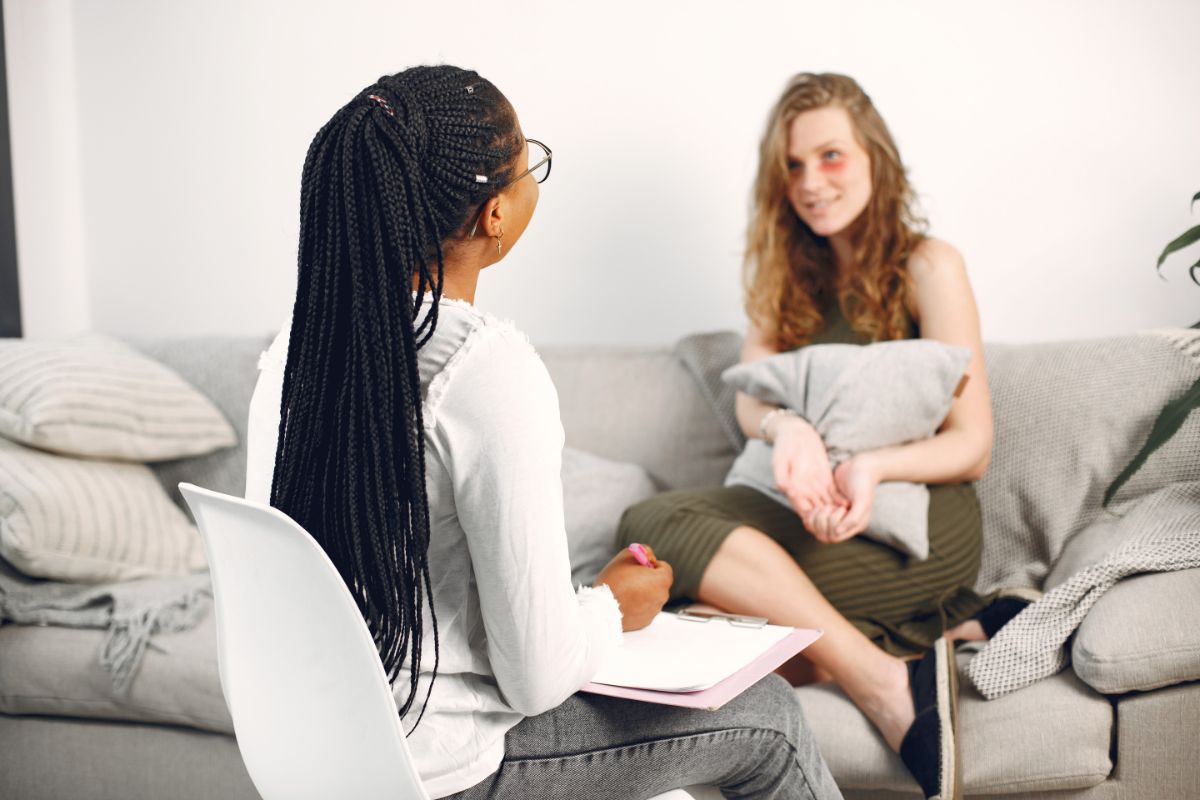It can be quite difficult to accept that going to a professional like a therapist or counselor will be beneficial for your mental health. But this is just the start of a path filled with uncertainties.
Reaching out to a possible therapist for the first time can be intimidating for those who are dealing with anxiety, sadness, stress, or any other mental health issue. That’s why we’re here to help.
If you’re unsure about how to make contact with a therapist, this guide will help you write your first email and what to ask in your first consultation so you can be confident when reaching out.
Writing The Email

It is best to keep your initial communication with a therapist brief. Ask if they have time to meet with you in the coming days after introducing yourself and providing a short statement about why you are reaching out.
Try structuring your email in the following way:
1. Greeting
Like with any email, begin by introducing yourself. Being polite will get you much further than demanding help. Also, tell them where you found them so they know how their services are reaching people.
For example:
- Hi [NAME], my name is [NAME]. I found you online and I was wondering if you could help.
- Hi [NAME], I’m [NAME]. I hope you can help me. I’m interested in your highly-rated services.
2. Ask For Help
Save your entire story for your first therapy session, if you decide to move forward with the therapist. You might want to reach out to more than one therapist, and then decide which one will work best for you.
After the greeting, give them a short summary of why you are looking for treatment. They’ll need a basic idea of where you are in life and what is troubling you.
For example:
- I have struggled with depression and anxiety for many years and it’s time for me to address these issues.
- I’m struggling to find purpose in my life and I was wondering if you can help put me on the right path.
3. Check Availability
Once you’ve introduced yourself and given a general overview of your mental health issues, it’s time to check to see whether they are available. If your job only allows you to be available during certain daytime hours, be precise about what works for you.
Give them a window of time to have this initial conversation as well. The more you put off meeting someone for the first time, the more likely you are to persuade yourself out of it.
For example:
- My work hours vary, but I have Wednesday off this week. Does that work for you?
- I work 9 to 5 on weekdays, are you available after 6 pm this week?
Having Your Phone/Zoom Consultation

It’s likely that you will have a phone or zoom consultation before you meet in person. You can learn more about your potential therapist’s personality during the consultation to determine whether you connect.
Also, you will be able to elaborate on your requests during the conversation and address any queries they may have.
The connection between a client and therapist is essential for treatment to be successful. But if you are hesitant, try not to stress over it too much or allow it to stop you.
During this brief consultation, you’ll decide if you want to continue or look for a therapist who is better suited to your needs.
1. Ask About The Price
It’s time for you to inquire about the price now that you have provided them with all the details they need to continue working with you.
Ask about the pricing per session, whether they accept insurance, and whether there is a discount offered for packages of ten or more sessions. This will enable you to assess whether the therapist in question can operate within your financial constraints and whether the therapy option is affordable for you.
2. Ask For Necessary Questions
The phone or zoom consultation is a great opportunity to ask any pressing questions you may have about the treatment. It’ll help you determine the therapist’s approach and philosophy.
Ask questions like:
- How should I prepare for my first session?
- What is a typical therapy session like?
- How will you approach my specific needs?
- Do you specialize in specific areas of mental health?
How To Get The Most Out Of Your Therapy Session

Once you’ve chosen a therapist and are getting ready for your first session, there are a few things you can do to make sure you get the most out of it.
You need to first understand what you want out of the session and communicate this to your therapist openly and honestly.
This will help you guide your therapist’s approach so they can pinpoint what needs to be worked on.
To get the most out of therapy, you should:
- Set goals – Actively take steps towards self-improvement. Your therapist is there to listen and help you deal with your issues, but you have to want to get better and improve yourself in order for the therapy to work. Setting goals will help you progress outside of your therapy sessions.
- Be realistic – Having realistic expectations can keep you out of a negative mind frame and relieve some of the pressure. Therapy takes time and effort so keep this in mind during your sessions.
- Ask questions – Don’t be afraid to ask questions. Therapy can be overwhelming and confusing. But your therapist is there to alleviate your concerns. By asking questions, you can have more productive conversations and more successful sessions.
Final Thoughts
Taking steps to improve yourself can be quite scary, but once you’ve made initial contact with a therapist, you can set yourself up for success and overcome the obstacles in life that are holding you back.
Once you’ve reached out to a therapist, you can start working towards a happier and healthier life.

